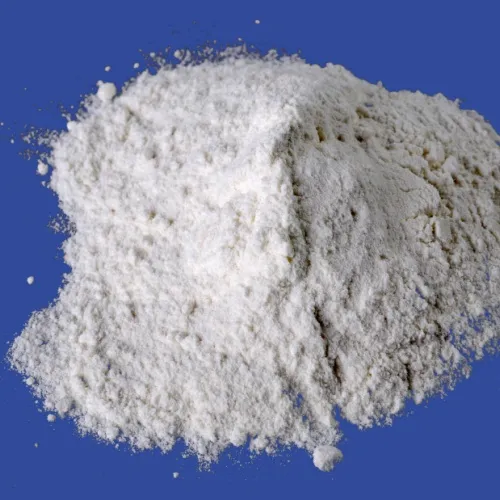Warning: Undefined array key "title" in /home/www/wwwroot/HTML/www.exportstart.com/wp-content/themes/1198/header.php on line 6
Warning: Undefined array key "file" in /home/www/wwwroot/HTML/www.exportstart.com/wp-content/themes/1198/header.php on line 7
Warning: Undefined array key "title" in /home/www/wwwroot/HTML/www.exportstart.com/wp-content/themes/1198/header.php on line 7
Warning: Undefined array key "title" in /home/www/wwwroot/HTML/www.exportstart.com/wp-content/themes/1198/header.php on line 7
- Afrikaans
- Albanian
- Amharic
- Arabic
- Armenian
- Azerbaijani
- Basque
- Belarusian
- Bengali
- Bosnian
- Bulgarian
- Catalan
- Cebuano
- China
- China (Taiwan)
- Corsican
- Croatian
- Czech
- Danish
- Dutch
- English
- Esperanto
- Estonian
- Finnish
- French
- Frisian
- Galician
- Georgian
- German
- Greek
- Gujarati
- Haitian Creole
- hausa
- hawaiian
- Hebrew
- Hindi
- Miao
- Hungarian
- Icelandic
- igbo
- Indonesian
- irish
- Italian
- Japanese
- Javanese
- Kannada
- kazakh
- Khmer
- Rwandese
- Korean
- Kurdish
- Kyrgyz
- Lao
- Latin
- Latvian
- Lithuanian
- Luxembourgish
- Macedonian
- Malgashi
- Malay
- Malayalam
- Maltese
- Maori
- Marathi
- Mongolian
- Myanmar
- Nepali
- Norwegian
- Norwegian
- Occitan
- Pashto
- Persian
- Polish
- Portuguese
- Punjabi
- Romanian
- Russian
- Samoan
- Scottish Gaelic
- Serbian
- Sesotho
- Shona
- Sindhi
- Sinhala
- Slovak
- Slovenian
- Somali
- Spanish
- Sundanese
- Swahili
- Swedish
- Tagalog
- Tajik
- Tamil
- Tatar
- Telugu
- Thai
- Turkish
- Turkmen
- Ukrainian
- Urdu
- Uighur
- Uzbek
- Vietnamese
- Welsh
- Bantu
- Yiddish
- Yoruba
- Zulu
ສ.ຫ. . 18, 2024 10:22 Back to list
Exploring the Role of Aspartame in Sugar-Free Products and Its Health Implications
Aspartame in Sugar-Free Products A Double-Edged Sword
In recent decades, the push towards healthier eating has led to a significant increase in the popularity of sugar-free products. One of the most commonly used artificial sweeteners in these products is aspartame. Found in a multitude of items ranging from diet sodas to sugar-free candies, aspartame has become a staple for those aiming to reduce their sugar intake. However, its presence in the food supply has sparked considerable debate regarding its safety and health implications.
Aspartame in Sugar-Free Products A Double-Edged Sword
The American Food and Drug Administration (FDA) and the European Food Safety Authority (EFSA) have both deemed aspartame safe for human consumption, with acceptable daily intake levels set at 50 milligrams per kilogram of body weight in the U.S. and 40 mg/kg in Europe. Despite these endorsements, a range of opinions and research findings has led to a divided public perception about its safety. Some individuals report adverse reactions to aspartame, such as headaches and dizziness, which have contributed to the skepticism surrounding its use.
aspartame in sugar free

Critics of aspartame often raise concerns about its potential link to serious health issues. Some studies have suggested that it might be associated with increased risks of certain cancers, neurological disorders, or metabolic issues. However, systematic reviews and larger studies have largely failed to establish a causal relationship between aspartame consumption and these adverse health effects. The evidence remains inconclusive, and much of the controversy appears to stem from earlier, often flawed research methodologies.
Additionally, public perception of aspartame has been influenced by the rise of dietary trends that favor natural over synthetic ingredients. Many consumers now distrust artificial sweeteners in general, believing that they may have long-term health consequences. As a result, some manufacturers have responded by reformulating products to eliminate aspartame and similar additives, opting for natural sweeteners like stevia or monk fruit extract instead.
On the other hand, aspartame does offer certain benefits, particularly for individuals with diabetes. Its negligible effect on blood glucose levels makes it a valuable tool for those managing their condition. Furthermore, aspartame can help satisfy sweet cravings without the associated calories of sugar, thereby supporting weight management endeavors. For many people, including diabetic patients and those looking to cut calories, the positive aspects of incorporating aspartame into their diet might outweigh the potential risks.
In conclusion, aspartame's role in sugar-free products embodies the complexities of modern dietary choices. While regulatory agencies have declared it safe for consumption, consumer concerns persist, fueled by anecdotal evidence and evolving health trends. As with many dietary components, moderation is key. Consumers should educate themselves about aspartame, consider their own health conditions and responses, and make informed choices. As the food industry continues to innovate and respond to public sentiment, the conversation surrounding aspartame will likely evolve, reflecting the ongoing quest for a balanced approach to sugar consumption and overall health.
Latest news
-
Certifications for Vegetarian and Xanthan Gum Vegetarian
NewsJun.17,2025
-
Sustainability Trends Reshaping the SLES N70 Market
NewsJun.17,2025
-
Propylene Glycol Use in Vaccines: Balancing Function and Perception
NewsJun.17,2025
-
Petroleum Jelly in Skincare: Balancing Benefits and Backlash
NewsJun.17,2025
-
Energy Price Volatility and Ripple Effect on Caprolactam Markets
NewsJun.17,2025
-
Spectroscopic Techniques for Adipic Acid Molecular Weight
NewsJun.17,2025

